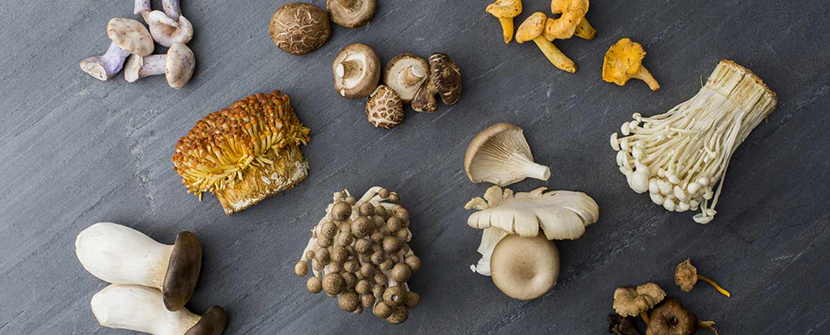When it comes to promoting heart health and managing cholesterol levels, mushrooms might not be the first thing that comes to mind.
However, these incredible fungi are packed with essential nutrients and bioactive compounds that can support cardiovascular well-being and help lower cholesterol levels. In this article, we will explore the benefits of mushrooms for heart health, highlight specific mushroom varieties known for their cholesterol-lowering properties, and provide tips on incorporating them into your diet.
The Link Between Mushrooms and Heart Health
Mushrooms have long been revered for their nutritional value and medicinal properties. Recent scientific research has shed light on their potential impact on heart health. Here are some of the ways mushrooms can benefit cardiovascular well-being:
- Cholesterol Regulation: Mushrooms are naturally low in fat and cholesterol while being rich in dietary fiber. High-fiber foods help reduce the absorption of cholesterol in the gut, consequently lowering LDL (bad) cholesterol levels.
- Antioxidant Activity: Mushrooms are a fantastic source of antioxidants such as polyphenols and selenium. These compounds help combat oxidative stress and reduce the risk of heart disease by preventing the oxidation of LDL cholesterol, which is a key step in the development of plaque in the arteries.
- Anti-inflammatory Effects: Chronic inflammation is a contributing factor to heart disease. Several mushroom varieties possess anti-inflammatory properties due to the presence of bioactive compounds like polysaccharides and triterpenes. By reducing inflammation, mushrooms may help protect the heart and blood vessels.
- Blood Pressure Regulation: Hypertension is a major risk factor for heart disease. Certain mushroom species contain bioactive compounds that have been found to help lower blood pressure, thereby supporting cardiovascular health.
Mushrooms for Lowering Cholesterol
While numerous mushroom varieties offer health benefits, some are particularly renowned for their cholesterol-lowering properties. Let's explore a few examples:
- Shiitake Mushrooms: Shiitake mushrooms contain a compound called eritadenine, which has been shown to have cholesterol-lowering effects. They are also rich in beta-glucans, a type of soluble fiber that helps reduce cholesterol absorption in the gut.
- Reishi Mushrooms: Reishi mushrooms have been used in traditional medicine for centuries due to their numerous health benefits. They contain triterpenes, which have been associated with lowering LDL cholesterol levels and reducing inflammation.
- Maitake Mushrooms: Maitake mushrooms are known for their potential to improve heart health. They contain beta-glucans, which can help lower cholesterol levels and reduce the risk of cardiovascular disease.
Tips for Incorporating Mushrooms into Your Diet
Now that we understand the heart-healthy benefits of mushrooms, here are some tips for including them in your diet:
- Add Them to Stir-Fries: Mushrooms make a delicious and nutritious addition to stir-fries. Sauté them with other vegetables and lean protein for a heart-healthy meal.
- Grill or Roast Them: Grilling or roasting mushrooms enhances their natural flavors. Marinate them with herbs, olive oil, and spices, then toss them on the grill or roast them in the oven for a delightful side dish.
- Blend Them into Soups and Sauces: Blend mushrooms into soups or sauces to add depth and richness to your dishes. This is an excellent way to incorporate their nutritional benefits without changing the taste significantly.
- Stuff Portobello Mushrooms: Portobello mushrooms can be stuffed with a variety of fillings such as quinoa, vegetables, and low-fat cheese. Bake them until tender for a hearty and cholesterol-friendly main course.
- Snack on Mushroom Chips: Make your own mushroom chips by slicing mushrooms thinly, tossing them with olive oil and seasonings, and baking until crispy. They make a healthy and satisfying snack option.
Closing Thoughts
Mushrooms are a versatile and heart-healthy ingredient that can naturally lower cholesterol levels and promote cardiovascular well-being. Their high fiber content, antioxidant properties, and ability to reduce inflammation make them a valuable addition to a heart-healthy diet. By incorporating mushrooms into your meals regularly, you can harness their nutritional benefits while enjoying their delicious flavors. So, let's embrace the power of mushrooms and give our hearts the care they deserve.








